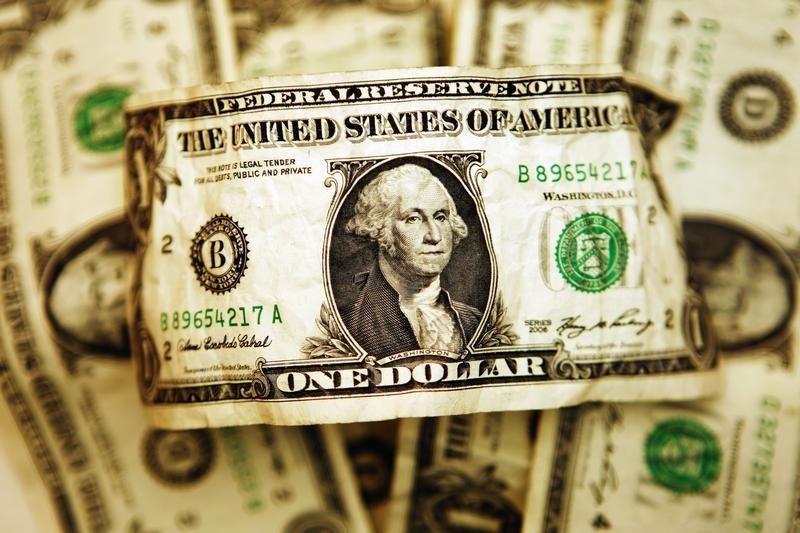Stock market today: S&P 500 drops for fifth day as focus shifts to Powell’s speech
By Geoffrey Smith
Investing.com -- The dollar was testing a two-month low against its major partners early on Tuesday, still under pressure after weak data from the manufacturing sector on Monday that encouraged hopes of an early 'pivot' from the Federal Reserve.
By 03:00 ET (07:00 GMT), the Dollar Index, which tracks the greenback against a basket of six developed economy currencies, was down less than 0.1% from Monday's close at 101.755.
Expectations of a growth slowdown had already strengthened on Monday due to the sharp rise in oil prices after OPEC made a surprise 1.1 million barrel cut to its output quotas. The decline gathered pace after the Institute for Supply Management's manufacturing purchasing managers index fell to a new cyclical low, reflecting a broad-based slowdown.
Fed Governor Lisa Cook had said after the figures that she still expects interest rates to rise a little further yet, given that the U.S. labor market remains strong. However, the market for short-term interest rate futures indicates expectations that the next Fed hike will be the last.
By contrast, data from the euro zone on Tuesday was relatively upbeat. German exports, typically an influential source of external demand for euros, posted their biggest monthly rise since June in February, adding to evidence that the euro zone's largest economy may avoid recession in the first quarter of the year. Euro zone producer prices for February, due at 05:00 ET, are expected to continue their steep decline as last year's energy spike unwinds.
"The key story is the sharp decline in imports relative to the peak in the middle of last year, as energy prices soared," said Claus Vistesen, an analyst with Pantheon Macroeconomics.
On Monday, Austrian central bank Governor Robert Holzmann had said he still sees room for another half-point increase in the European Central Bank's rates. Holzmann is arguably the most hawkish of the members of the ECB's governing council, and his comments are an outlier, relative to the rest of the decision-making body.
By 04:15 ET, the EUR/USD was up 0.2% at $1.0920. The pound was also up 0.2% at $1.2437, its highest since late January.
Elsewhere, the Australian dollar fell 0.4% to $0.6757, after the Reserve Bank of Australia paused its policy tightening cycle, even though it left the door open to further interest rate increases down the line if inflation fails to improve.
